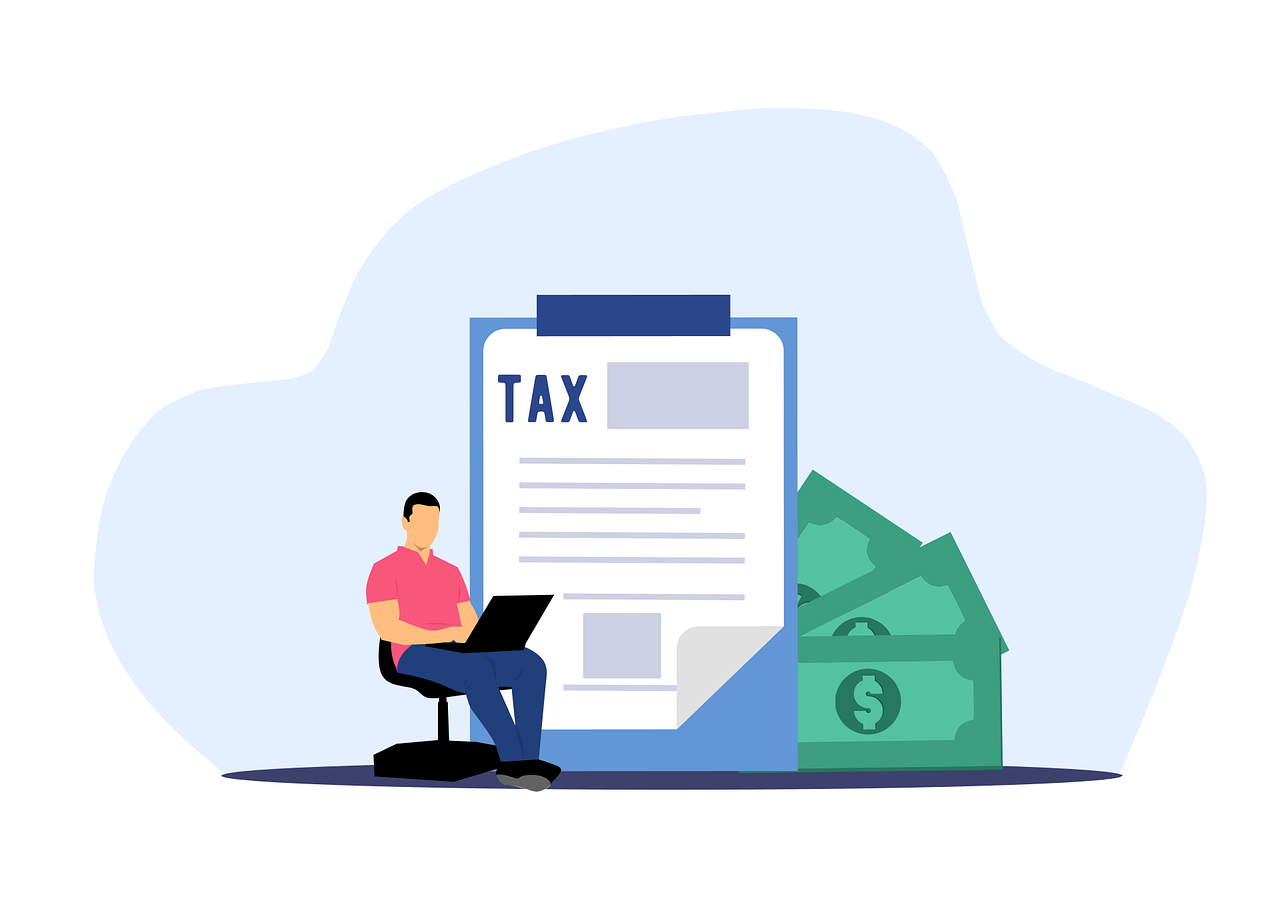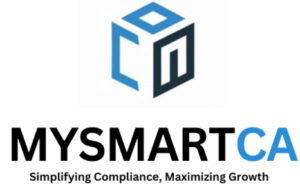Are you looking for an expert to file your GST Return?
Simplify your GST Return Filing process through our Expert Team.

Right plan for Your Business
STANDARD PLAN
Perfect Initiative for your Business
GST Registration
- for Individual
- for Partnership
- for LLP
- for Pvt Ltd
What Service we'll provide you
- Filing of GSTR-1
- Filing of GSTR-3B
- Monthly Tax Compuation Sheet.
- Full Record on your GST Input and Output Data.
- GST Reconciliation on a monthly basis.
PREMIUM PLAN
Perfect Initiative for your Business
GST Registration + MSME
- for Individual
- for Partnership
- for LLP
- for Pvt Ltd
What Service we'll provide you
- Filing of GSTR-1
- Filing of GSTR-3B
- Filing of GSTR-9
- Filing of GSTR-9C
- We'll Manage your Sales Invoices.
- We'll Manage your Purchase/Expense Invoices.
- Zoho/tally Invoicing Setup.
- Monthly Tax Compuation Sheet.
- Full Record on your GST Input and Output Data.
- GST Reconciliation on a monthly basis.
OTHER REGISTRATIONS
Perfect Initiative for your Business
- PF, ESI and PT Registration
- Udyam (MSME) Registration
- Shop & Establishment
- ISO Certification
- IEC Code
- FSSAI Certification (Food Licence)
- Digital Signature Certificate
- Hallmark Registration
- Copyright Registration
- Patent Registration
- Trademark Objection
Benefits of GST Filing with MySmartCA

Customized Service
Complete end to end services for individuals/ Business Entities or other entity.

Filed by Chartered Accountant
Your GST Return will be prepared and filed by our experienced team of CAs having Vast Experience.

E-Commerce GST Filing
Specialized Services for Sellers Who work on online selling platforms including Refund Adjustments.

Timely Submission GST Return
We will submit your GST Return with in 24 hours of submission of all details

100% Transparency
You will receive a report on every GST Return Fling with details of tax liability

Dedicated Customer Support
We are available 7 days a week. You can reach us via Phone, Email, & WhatsApp.
GST is a tax levied on the sale of goods and services. It is designed to be a single, comprehensive tax system that simplifies the process of taxation by replacing multiple indirect taxes, such as sales tax, VAT, and service tax.
IGST, CGST, and SGST are types of taxes under the Goods and Services Tax (GST) system in India. Here’s a brief overview of each:
1. CGST (Central Goods and Services Tax):
- Definition: A tax levied by the Central Government on intra-state (within the same state) supplies of goods and services.
- Purpose: It is collected by the central government and is used to fund central government services and infrastructure.
- Applicability: Applies to transactions where both the buyer and seller are in the same state.
2. SGST (State Goods and Services Tax):
- Definition: A tax levied by the State Government on intra-state supplies of goods and services.
- Purpose: It is collected by the state government and used for state-level services and infrastructure.
- Applicability: Also applies to transactions where both the buyer and seller are in the same state.
3. IGST (Integrated Goods and Services Tax):
- Definition: A tax levied by the Central Government on inter-state (between different states) supplies of goods and services and also on imports.
- Purpose: It ensures that the tax revenue is shared between the central and state governments. The central government collects it and then distributes it between the states involved.
- Applicability: Applies to transactions where the buyer and seller are in different states or when goods/services are imported into India.
Key Points:
- Intra-state Transactions: Both CGST and SGST are applied.
- Inter-state Transactions: IGST is applied.
- Input Tax Credit: Businesses can claim input tax credits on CGST, SGST, and IGST to reduce their tax liability.
What is a GST Return?
A GST return is a form that businesses with a GST number need to submit to the tax authorities. It includes details of their sales and purchases. This information helps the tax authorities figure out how much tax the business owes or should get back.
The GST return usually covers:
- Purchases made by the business
- Sales made by the business
- GST collected on sales
- GST paid on purchases (which can be used to reduce the tax owed)
How Many Returns are there under GST?
Under the Goods and Services Tax (GST) system in India, there are several types of returns that businesses need to file, depending on their category and type of transaction. Here are the key returns:
File all your GST returns with MySmartCA expertise.
1. GSTR-1:
- Purpose: Details of outward supplies (sales) of goods and services.
- Frequency: Monthly or quarterly (for small taxpayers).
2. GSTR-2:
- Purpose: Details of inward supplies (purchases) of goods and services.
- Frequency: This return was previously used but has been suspended. Now, businesses reconcile their purchases through GSTR-2A and GSTR-2B.
3. GSTR-3B:
- Purpose: Summary of outward and inward supplies along with the payment of tax.
- Frequency: Monthly.
4. GSTR-4:
- Purpose: Return for composition scheme taxpayers, detailing their outward supplies.
- Frequency: Quarterly.
5. GSTR-5:
- Purpose: Return for non-resident foreign taxpayers.
- Frequency: Monthly.
6. GSTR-6:
- Purpose: Return for input service distributors, detailing the distribution of input tax credits.
- Frequency: Monthly.
7. GSTR-7:
- Purpose: Return for tax deductors under GST (e.g., TDS collectors).
- Frequency: Monthly.
8. GSTR-8:
- Purpose: Return for e-commerce operators, detailing the tax collected at source (TCS).
- Frequency: Monthly.
9. GSTR-9:
- Purpose: Annual return for regular taxpayers, summarizing all GST-related transactions for the financial year.
- Frequency: Annually.
10. GSTR-10:
- Purpose: Final return to be filed when a business is closing down or cancelling its GST registration.
- Frequency: Once, upon cancellation.
11. GSTR-11:
- Purpose: Return for persons claiming a refund under the UIN (Unique Identification Number) scheme.
- Frequency: Monthly.
GSTR-3B Late Fee
1. For Non-Nil Returns:
- Late Fee: ₹100 per day (₹50 for CGST + ₹50 for SGST) for each day of delay.
- No Maximum Cap: The late fee accumulates daily without an upper limit. This means the total late fee can become substantial if the return is filed late.
2. For Nil Returns:
- Late Fee: ₹20 per day (₹10 for CGST + ₹10 for SGST) for each day of delay.
- Maximum Cap: ₹500. This cap is applicable to Nil returns, meaning that the total late fee will not exceed ₹500.
Additional Points:
- Interest: In addition to late fees, interest at a rate of 18% per annum is charged on any late payment of taxes.
- Frequency: Monthly.
- Purpose: Return for persons claiming a refund under the UIN (Unique Identification Number) scheme.
- Relaxations: The GST Council sometimes provides relaxations or waivers in late fees, particularly during special circumstances or for certain categories of taxpayers.
For the most current details and any possible changes to the late fee structure, always refer to the official GST portal or consult with a tax professional.
